On November 30 at the Newseum, I had the privilege of conducting a conversation with General Joseph Votel of CENTCOM as part of the Foreign Policy Initiative’s day-long conference on American national security policy. General Votel, true to form, was fascinating. The conversation was sobering, but not without a number of hopeful dimensions.
Here are some of the major takeaways:
- On Egypt, according to the general, collaboration with the United States has been set back by all the events beginning with 2011 and the Arab spring, and it has not yet fully recovered. But Egypt has done a great deal to continue to collaborate on counterterrorism, on ensuring prompt access to the Suez Canal, and on ensuring the stability of its own country. Recently, President Abdel Fatah el-Sissi’s more restrained treatment of former President Morsi (taking him off death row, notably) has helped create a somewhat more conducive environment for U.S.-Egypt cooperation.
- Within Iraq, there are perhaps 100,000 Shiite militia fighters on the battlefield in one way or another today, many of them supported by Iran. (That number was higher than I expected, and more specific than I’d previously heard from a U.S. official.) While there is no significant progress towards the possible creation of a National-Guard like force, the government does seem to be doing generally better at collaborating with key Sunni figures in preparing for the period after Mosul is liberated, working with tribes, police forces, and other authorities.
- In Syria and Iraq, there is overall progress in defeating ISIS, though it is conceivable that the liberation of Mosul could take a couple more months.
- In Syria, the former al-Qaida affiliate, the Nusra Front (or the “Front for Conquest”) remains a significant and serious concern. One hopes that any change in future U.S. policy towards Syria, under a new president, would still allow for some support for certain moderate opposition groups that have been helpful in defending American interests in the region (for example, in helping to stabilize the region near the Jordanian border).
- While Iran does seem to be complying, in general, with the basic terms of the Joint Comprehensive Plan of Action (JCPOA), its overall level of assertiveness and nefarious activity in the broader region may have increased somewhat since the signing and initial implementation of the JCPOA.
- In Afghanistan, the quality of Afghan army leadership seems to be gradually improving. Casualties to the Afghan army and police are still high, however, and U.S. as well as Afghan policymakers are looking for ways to reduce these in various ways. On balance within Afghanistan, one might say—according to General Votel—that there is an equilibrium that favors the government. Put differently, the government might control some 60 percent of the country, the Taliban some 10 percent, and the remaining 30 percent is still contested. Despite some losses and setbacks in places such as Helmand, Kunduz, and parts of the east, no major deterioration of the overall situation has occurred in 2015 or 2016. A broader policy review on U.S. policy in Afghanistan (and other parts of the region) would certainly be warranted by a new administration: “in the CENTCOM theater, nothing is on cruise control and nothing should be,” as General Votel so aptly put it.
General Votel also spoke favorably of the new authorities granted to Special Operations Command, which he formerly led, argued that SOCOM together with the Joint Staff and broader U.S. government could help prevent an overly stove-piped approach to transnational threats in which each geographic command focused too narrowly on its own “turf.”
I found it remarkable how much information General Votel conveyed in less than one hour, and certainly believe that one of President Obama’s strong legacies of 2016 will be the selection of this particular military leader to head up American military efforts in the broader Middle East region.
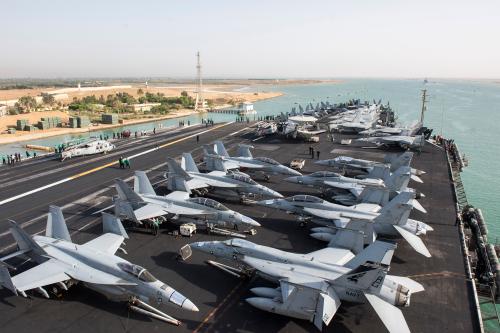
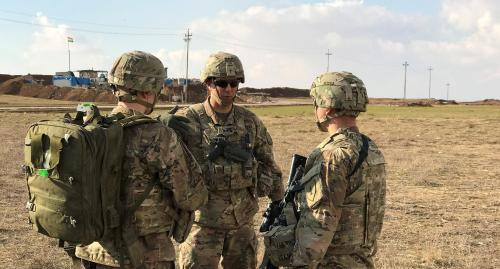
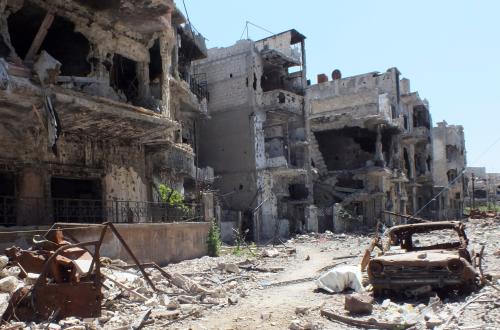


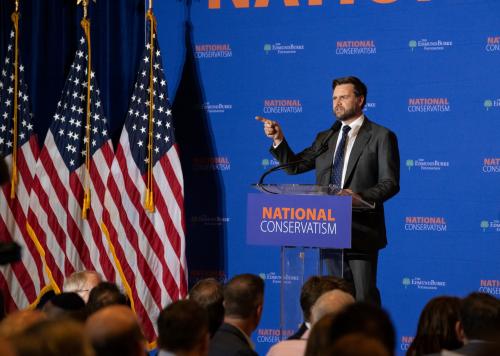
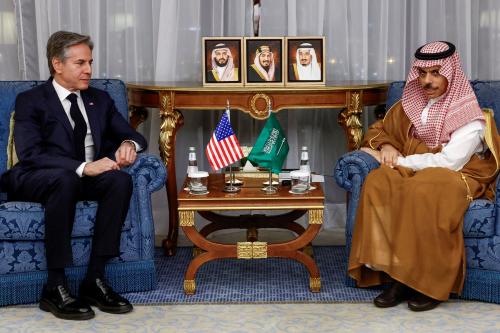
Commentary
The state of the Middle East, from the point of view of the CENTCOM commander
December 2, 2016